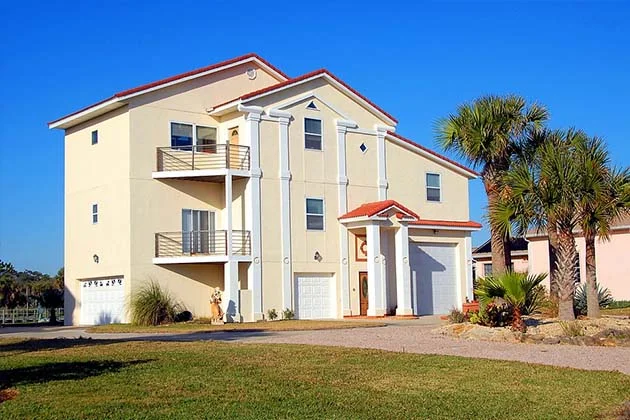So you’re considering buying rental property. A great way to ensure that your investment is successful is by estimating the amount of cash flow and returns it will generate for you. Keep in mind that many factors go into calculating these numbers. Rest assured that this article will provide some general guidelines on how to get started with estimating them yourself using simple steps.
Understand the difference between gross and net income
One of the primary things that you need to familiarize yourself with is the difference between gross and net income. Essentially, the former includes all money that you earn from renting out your property while the latter results in fewer deductions for things like taxes, insurance premiums, or maintenance costs.
Calculate operating expenses depending on rental type
Another thing to consider when estimating returns is how much it will cost you to keep up with operations. Take the time to explore online sources, where you may come across an online rental return calculator. It will be an excellent idea for you to check this out, so you will have a good perception of how much you will most likely earn from your investment after you factor in your operating expenses. When you calculate your operating expenses, you will get a better idea of how much you can spend on property improvements.
● Determine if the proceeds are enough to cover all of your expenses through a spreadsheet or other similar system
Thanks to the emergence of the internet, you can now access spreadsheets or other similar systems that you can use to help you calculate your potential returns on investment. You can also use these tools to come up with the best strategies for maximizing your rental property’s value over time if you are planning on selling it in the future.
Be sure to include taxes
It’s also important that when estimating returns, you take the time to factor in the amount of taxes you will have to pay. If you are not familiar with property tax rates, it would be a good idea for you to do some research online. This will make things easier when determining your potential returns on investment.
When making comparisons, remember that every situation is different
Another thing to keep in mind when estimating returns and cash flow is that every situation is different. If you’re not sure how much to add on for expenses and tax rates, look for online sources where previous homeowners have shared their experiences, so it will make things easier when determining your potential returns on investment.
Be aware that when calculating cash flow, depreciation should also be included as an expense
Depreciation is a factor that you also need to consider when calculating cash flow. Simply put, depreciation is the loss in value of an asset over time, which occurs as it wears out or becomes obsolete. You can’t avoid this expense, so be sure to account for this number because failing to do so could make your numbers look far too rosy and cause you to make the wrong decision on whether or not you should rent your property. You should also take into account other factors such as mortgage payments and insurance costs before finalizing the purchase decision.
Make sure you factor in vacancy rates
The vacancy rate is the percentage of time your property will be vacant. The best way to go about this is by projecting how much money you will need to spend on advertising and even touching up any areas that might be of concern for potential renters. When you factor in the vacancy rate, it will further help you estimate your returns.
Consider whether or not you want to include utilities in rent prices
When you factor in the utilities in the rent prices, this can make it easier for your tenants to budget their monthly bills. In case you are wondering how much to add on for utilities, it would be a good idea to check out some online articles where they have calculated average utility rates by state.
If you are considering buying an investment property, take into account other factors such as the initial costs of fixing up your property and whether or not utilities will be included. You also need to factor in vacancy rates so that you can calculate how much cash flow for a month on average before expenses like vacancy and depreciation come out of it. Knowing the basics about gross versus net incomes coupled with understanding operating expenses can empower you when deciding on improving your portfolio by investing in real estate!











